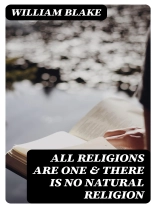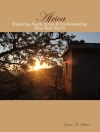In ‘All Religions Are One’ and ‘There Is No Natural Religion, ‘ William Blake presents a provocative examination of spiritual truth beyond the constraints of institutional doctrine. The dual texts encapsulate Blake’s visionary style, characterized by richly symbolic language and a deep exploration of the relationship between divine gnosis and human perception. By challenging the existing religious paradigms of his time, Blake seeks to illuminate a universal consciousness that transcends sectarian divides, positioning his work within the broader Romantic movement that emphasizes individual experience and the sublime. William Blake (1757-1827), an unorthodox poet and artist, was profoundly influenced by his own mystical experiences and the tumultuous intellectual climate of the late 18th century. His oeuvre reflects a quest for enlightenment that parallels the questions and anxieties of his era, illustrating the conflict between Enlightenment rationalism and the depths of spiritual insight. Blake’s unique position as a visionary poet and engraver informed his belief in the interconnectedness of all spiritual paths, revealing an artist deeply concerned with the state of humanity’s soul. This collection is a must-read for anyone interested in spirituality, philosophy, or literature, offering profound insights into the nature of belief and the human condition. Blake’s work serves as a timeless invitation to explore beyond established doctrines, encouraging readers to find their own paths to spiritual enlightenment.
Об авторе
William Blake (1757–1827) was an English poet, painter, and printmaker who remains an enigmatic figure in the history of the arts. Predominantly unrecognized during his lifetime, Blake is now considered a seminal figure in the history of both poetry and visual arts of the Romantic Age. Inspired by visions seen from a young age, Blake’s work encompasses a highly original combination of poetry, visual arts, and mysticism. Noted for his expressiveness and creativity, Blake’s work engages themes of revolutionary spirit, human existence, and the critique of institutional religion and morality. His prophetic works, such as ‘All Religions Are One’ and ‘There Is No Natural Religion’, emphasize his views of universal spiritual brotherhood. Blake’s idiosyncratic views and symbolism compiled in texts like ‘Songs of Innocence and of Experience’ and his epic prophetic poems including ‘Milton a Poem’ and ‘Jerusalem: The Emanation of the Giant Albion’ further demonstrate his literary and artistic genius. Blake’s influence can be seen in various literary movements and he continues to inspire modern artists and writers. His work invites scholars and readers to explore profound philosophical and existential questions, and his vision remains a potent reminder of the power of imagination and artistry.












